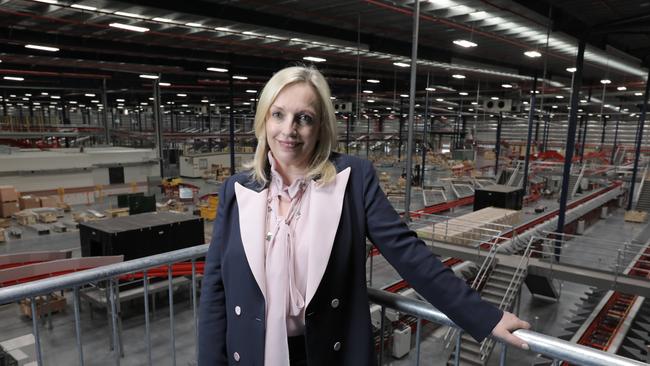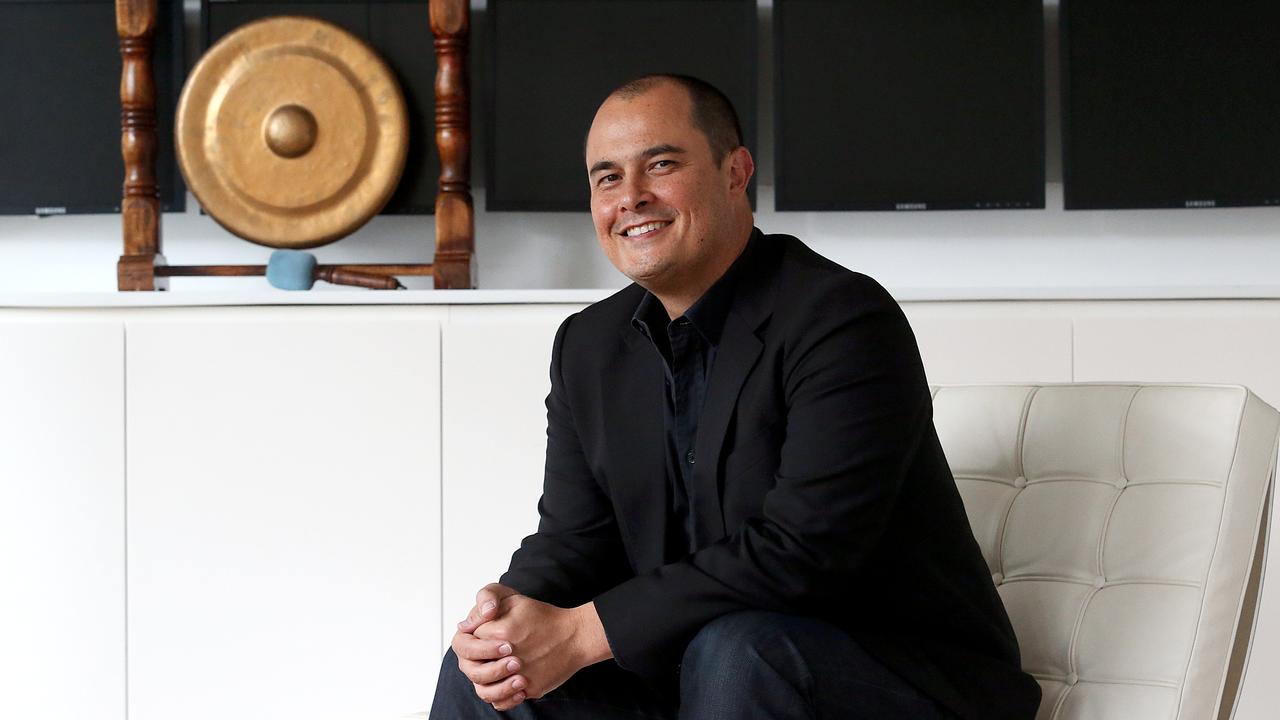
Some of it is due to delays from corporates like Qantas, which admits to delays of more than 10 weeks in refunding passengers.
Travel agents are in a world of pain, spending their time chasing refunds for customers and this task is made much harder by Qantas delays.
The airline, which holds its annual meeting on Friday, has acknowledged the average wait time can be more than 10 weeks and has apologised, but that is reality.
Ask who comes next in the line of tardy refunders and travel agents say Malaysian Airlines and Garuda.
Karsten Horne runs Reho Travel in Melbourne and has lost five staff, with another 25 on JobKeeper that now pays $1200 a fortnight, but this compares with his staff’s normal pay of $2300 a fortnight.
The business operates in the corporate travel game, including running study tours for universities and travelling doctors, arranging flights and accommodation.
Many of the staff are long-term employees, which means when they work they earn long service leave, and while Horne’s revenue has collapsed he is carrying a leave liability that now runs to more than $200,000.
He wants to keep staff working, but the costs are extraordinary so staff are on reduced hours.
He has some working on projects like a new dashboard to help serve customers, creating a new model based on charging for services instead of transactions, finding alternate study trips for universities going to New Zealand instead of Borneo, and Wellington instead of Washington to look at politics.
The focus on new strategies works to a point while the real work is on hold indefinitely. And even when it is around, frustration levels run high with domestic bookings for doctors taking several hours to book because of reduced staff at the airlines.
Federal government support is welcome and it’s opening the borders that will help when confidence actually returns.
All this while playing the role as an emotional and financial supporter for the staff is the new role for a small business boss.
Contract reform push
The ACCC case against Fuji Xerox underlines the need for reform of the unfair contract laws, given the only remedy the regulator can win is a declaration that the contract is void.
In its statement, the ACCC said it “alleges there are 31 different terms which are unfair, including automatic renewal terms, excessive exit fees and unilateral prices increases”.
“The terms have been used in contracts between Fuji and its small business customers for the supply of printing goods and services and technical assistance since at least October 2018.”
Technically the company can void the contract and simply rewrite a new one with similar egregious terms.
Far better if there was a law declaring unfair contracts illegal, which would mean companies that presided over the contracts would be in breach and held accountable and just maybe would not write the contracts in the first place.
Holgate’s time up
Communications Minister Paul Fletcher has another task now in finding someone to run Australia Post, with Christine Holgate’s term clearly over.
The concept of unexpected corporate gifts to staff is not unheard of in most sales-based companies, with the only surprises being the rewards came in the form of jewellery and one of the watches went to her direct report, Greg Starr.
Normally those further up the food chain would earn the spontaneous applause in a more mundane form like cash.
Australia Post is a government enterprise operating in a commercial environment where such spontaneity is common in at least other forms.
The gifts were a reward for banking deals that brought in another $70m in revenues for Post, which makes the $12,000 spent on them seem small.
Post’s board is at best mixed full of political cronies and box ticking to ensure full state and gender representation.
The decision to stand Holgate down without even talking to the chief executive tells you she had run out of leverage in Canberra, despite managing to grow parcels deliveries more during the course of the year than the division handled only two years ago.
Her time at Post has been a culture clash from the beginning and the old school politics has won the battle, but let’s wait to see who wins the war.
Post faces the challenge of fast-growing logistics demand, a highly unionised workforce, a highly supportive franchised retail network and technology winning the battle over the letters business. Fletcher faces a bigger challenge getting someone with the right qualifications to fill those shoes.
Bega wants to be bigger
Next week Bega chair Barry Irvin will preside over the company’s annual meeting at a time when, at Thursday’s close of $5.30, the stock is trading at an extraordinary 26 times forecast earnings ahead of a potential $500m equity raising.
The raising would be to pay for the proposed Lion Dairy acquisition in which the company is up against Canadian giant Saputo and investment firm Tanarra Capital.
Lion failed to sell the division, which now earns about $40m a year, to Mengnui because the federal government blocked the sale to a Chinese buyer, despite having approved the same buyer months earlier in purchasing Bellamy’s.
Lion would obviously like the same selling price at $600m and the fact Saputo has thrown its hat in the ring is a boost even though it requires FIRB and ACCC clearance. This means a delayed sale when Lion wants to either sell or keep the asset.
Bega is the favourite but is already leveraged at some 2.3 times earnings with a stated goal to get the ratio under two times — only possible with an equity raising.
Irvin could surprise by using more debt for the deal, noting interest rates are at record lows and the Lion earnings are depressed now because COVID-19 has killed food service earnings.
The heroic Bega multiple comes ironically enough in part because of promised cost-cutting and new plant at its Koroit facility.
Subscribers to its two most recent equity raisings are under water with the last for $250m in 2018 at $7.20 a share and before that $160m at $5.35. The stock has underperformed the market by 29 per cent over five years, by 47 per cent over three years and magically outperformed ahead of an equity raising by 26 per cent over the last 12 months.
Irvin is on record as wanting more brands and Lion gives him the second best cold storage supply chain in the country with flavoured milk and yoghurt brands.
But his recent acquisition track record is also mixed with the 2017 Mondelez acquisition for $460m yet to hit targeted earnings.
Shareholders should use the annual meeting to check on the status of legal action with the vendors over the Kraft licence and the logic of another acquisition.




Big business may hit the headlines demanding action from Victoria over the lockdown, but the state’s small business community has faced the real damage without any of the support that a chief executive of BHP may have around them.